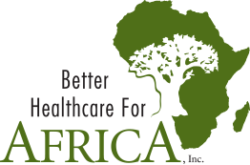For more than thirty years I have been an oncology social worker, and, since 1993, I have also been a woman living with breast cancer. I am the Chief of Oncology Social Work here at Boston’s Beth Israel Deaconess Medical Center, a teaching hospital of Harvard Medical School. In addition to my clinical responsibilities, I am on the faculty of the Simmons College School of Social Work, give many lectures and talks, and have written a number of professional articles and two books about coping with breast cancer. For a year, ending in November 2008, I wrote a blog for RevolutionHealth.com and loved the experience of connecting with women all over the world. When that opportunity ended, I was delighted that Beth Israel Deaconess Medical Center decided to support a similar program. I now write a daily blog about various medical and psychosocial concerns, Living with Breast Cancer.
I had been working with women with breast cancer for 14 years at the time of my first diagnosis. I thought that I knew a lot about what it was like to live with breast cancer, but, in the first minute after hearing the words from my doctor, I realized that I knew nothing. Spending my days with women coping with cancer should have prepared me for my own diagnosis. But like almost everyone else, I was stunned by the news and most helped by other women who had walked this path. Their experiences informed and guided me, and I could not have managed as well without the breast cancer community that surrounds me.
In 1993, I was treated with surgery, chemotherapy, radiation therapy and ongoing endocrine/hormonal treatment. As the years passed, I became more confident about the future, although the concern never completely disappeared. What had not occurred to me was that I might be diagnosed with a second primary breast cancer—totally unrelated to the first. Yet that is what happened in 2005. I was treated again with surgery, chemotherapy and ongoing endocrine/hormonal treatment. I am now feeling fine, strong and, as far as I know, am completely healthy.
In many ways, I live a double life as cancer professional and cancer patient. The irony has been the positive influence of my bad luck on my career.
During the fall of 2010, my husband and I were fortunate to spend two weeks in Zimbabwe. He is a medical oncologist, so we talked with a number of people about cancer care in Africa. We fell in love with the country and returned home wishing that we could find ways to share our skills and our communities. I have spoken since then with many breast cancer patients and survivors about our dream. To a woman, each one has said: “I’m in.”
The question now is what can we do? Understanding that lives in Boston and lives in Zimbabwe are very different, I am also sure that all women with cancer share common bonds. We worry about our children, our husbands, our families, our work—and, of course, our own health. How can we best help each other get the best possible treatment and care for those whom we love? Are there ways that individual women can connect with one another? Can we share what we have learned and can we support each other?
Is financial assistance the primary need or are there others? Do women in Africa need breast prostheses or head coverings? What do their families need?
I am dreaming big, and I need your ideas. Please write to me at: hhill@bidmc.harvard.edu
Hester Hill Schnipper, LICSW, BCD, OSW-C
Program Manager
Oncology Social Work
Beth Israel Deaconess Medical Center
330 Brookline Avenue
Boston, MA 02215

I have a cousin in Zimbabwe with a friend who was told she had breast cancer and needed an operation, but due to a lack of education of these woman and of support, she did not return until two years later, which left a rotting breast and very sore oozing mass because she did not understand and had no one to talk to. It breaks my heart that someone has to go through that. Much needs to be done to improve cancer education and care to prevent such suffering.